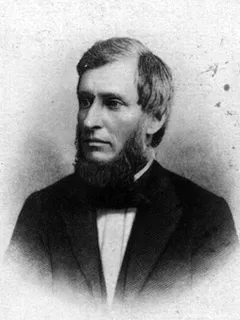Edward Parrish
1864–1871

Edward Parrish (1822–1872) traveled for months on horseback to raise money for the school before its opening. Trained as a pharmacist, he saw the value of making higher education available to all people and spoke of “parting with the aristocratic idea of an educated class.” In addition to serving as president of the College, Parrish was also a professor of ethics, chemistry, and the physical sciences.
Under Parrish, Swarthmore was immediately distinctive in its coeducation, a wide-ranging liberal curriculum with an emphasis on the sciences, and faithfulness to Quaker simplicity. In 1866, Parrish spoke at the laying of the cornerstone of the College’s first building, later named Parrish Hall in his honor. “We claim a higher mission for Swarthmore College than that of fitting men and women for business,” he said. “It should fit them for life, with all its possibilities.”
Shortly after his resignation, Parrish was commissioned by President Ulysses S. Grant to take part in a Quaker effort to settle by peaceful means the disputes between Plains Indian tribes and the United States. While in what is now Oklahoma, he contracted malaria and died at Fort Sill.



